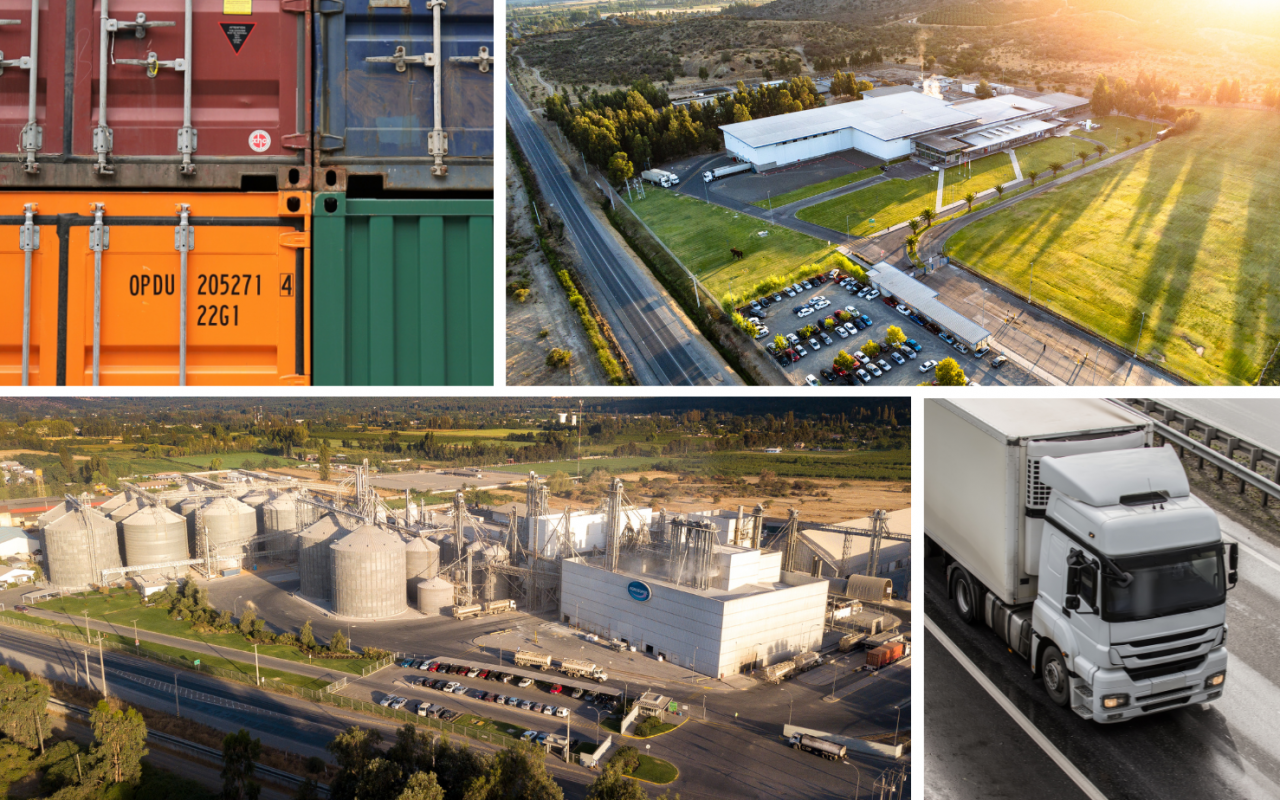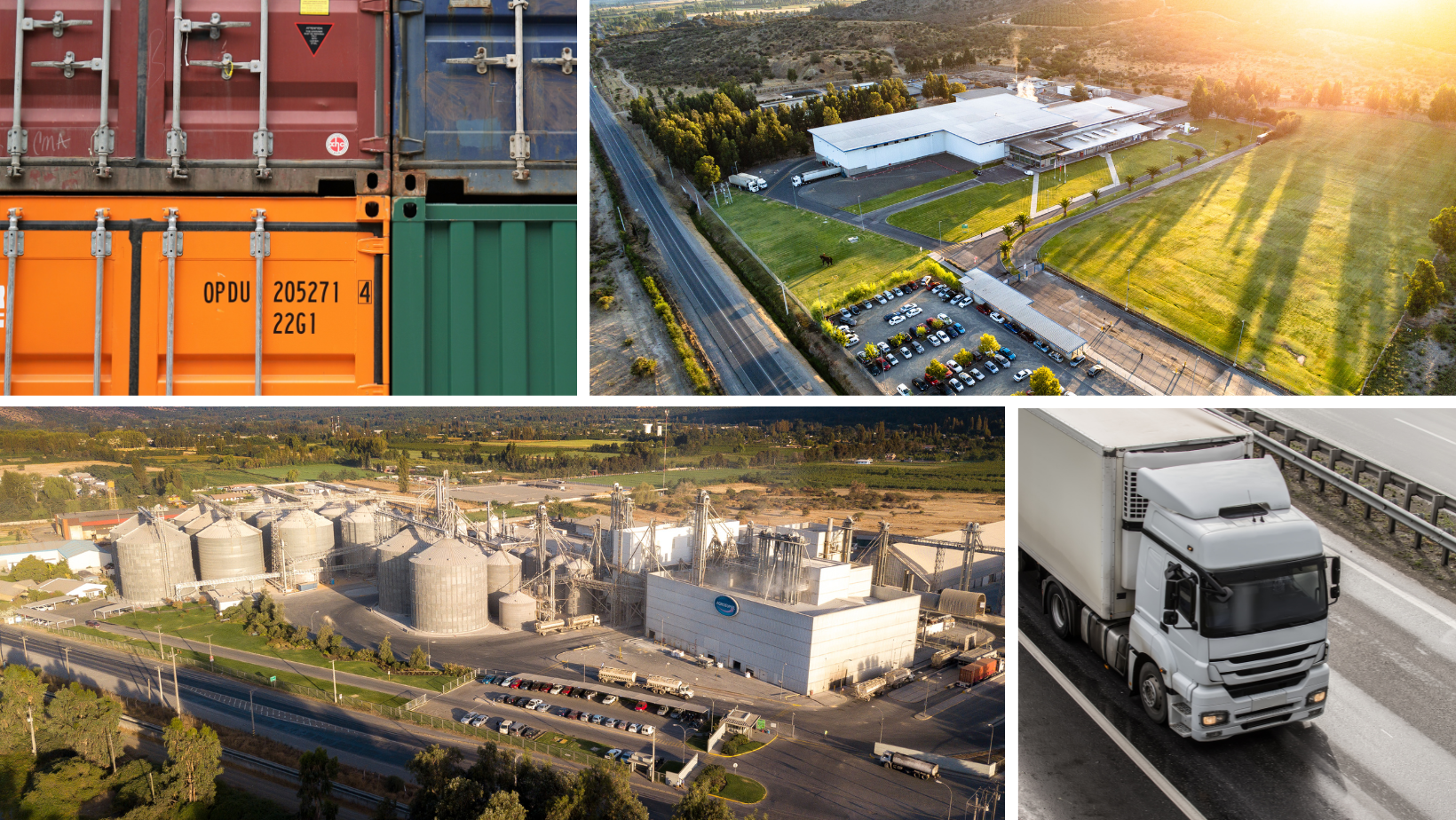
Pork logistics in Chile: keys to a biosecure and traceable offer
For the food industry, particularly the pork sector, guaranteeing biosecurity in all processes, as well as product safety and preserving the cold chain are key. It all has a direct impact on the quality of cuts. This is why ChileCarne’s member companies have strived to comply with the highest logistics standards that allow their products […]

For the food industry, particularly the pork sector, guaranteeing biosecurity in all processes, as well as product safety and preserving the cold chain are key. It all has a direct impact on the quality of cuts. This is why ChileCarne’s member companies have strived to comply with the highest logistics standards that allow their products to reach their destinations in Chile and the world. The Association represents the ChilePork brand under which Chilean pork is promoted worldwide.
During pork transportation, whether refrigerated or frozen, ensuring food safety and product preservation is critical for products to be fit for human consumption. Hence, guaranteeing proper storage and transportation conditions is key to avoiding any potential issues. To learn more about the primary stages and considerations, ChilePork delved deep into the processes followed by its members Coexca and Agrosuper.
“We are a vertically integrated company, so it all begins with transporting grains for our animal feed. Then, feed is distributed to farms, and the chain continues with animal transportation to our production plants. Once we have the final product, we continue with transportation to our distribution centers both in Chile and abroad, to end the process with delivery to our customers. We also need to consider all the hubs that store, receive, and dispatch these products,” explains Mario Aravena, Agrosuper’s Head of Transportation.
In turn, Carlos Hlousek, Coexca’s Operations Manager, says that “it is an ongoing challenge to maintain all the measures that guarantee product safety, biosecurity at the facilities in which they are manufactured (feed mill) or processed (industrial plants), and the traceability of the meat that is sold in domestic and foreign markets. Our goal is to allow families in Chile and all over the world to enjoy nutritious, tasty, and assorted foods, made under the highest standards of food security, service quality, and care for the environment.”
One of the certifications obtained by Coexca is the ISO 9001:2015 quality standard, which confirms that the company complies with all the elements of an effective system to manage and improve the quality of its products and services. It also obtained the British Retail Consortium (BRC) food safety standard, one of the most prestigious and demanding food safety standards in the world. Hence, all production processes allow for all products that reach the market to be and remain safe.
It should be noted that in recent years white meat transportation logistics, particularly for pork, have benefited from the use of new technologies. “The progress we have seen in tracking services for shipping or container sensors with real-time data have provided the meat industry logistics with more certainty. A more informed decision-making has helped us anticipate potential shipping and port scenarios,” says Mario Aravena.
Coexca’s product transportation has en route monitoring logistics based on GPS devices, and it also provides online temperature data from the container transporting the product. A similar technology is used in trucks for distributing the animals’ diets to the rearing centers. “Regardless of the destination market, the cold and safety chain are critical. The vehicles are monitored by satellite to know their location and movements, as well as the temperature of the products they are carrying,” adds Carlos Hlousek.
This shows us that if the logistics process is impacted by an external factor such as a natural disaster, a truckers strike, or other, companies must mitigate the impact at each stage of the logistics chain. “The first process that is disrupted is transportation and distribution, with an immediate impact on the shelf life and condition of the products being carried. Then, storage centers are the most impacted, due to the backlog of products waiting to be distributed. It produces a chain reaction, as it impacts the industrial processes of animal slaughtering, rearing, and feeding,” highlights Agrosuper’s representative.
Regarding the aspects that guarantee the safe and complete traceability of food from the producer to the end consumer, both companies explain their thorough monitoring systems. Agrosuper controls the systemic production and traceability of each manufactured product; the safety and temperature of the product is continuously monitored at each stage; they track transportation and distribution conditions; and control physical storage and the situation at the distribution centers. “All these aspects impact how all participants of the logistics chain organize their efforts and how our customers perceive the consumption experience,” emphasizes Mario Aravena.
In turn, Coexca has protocols and procedures in place for each type of cargo. For transporting pig feed, the Balanceados Coexca plant follows strict biosecurity measures in its facilities and during the production and loading of the various diets. It guarantees traceability throughout the production process, just like Coexca’s main processing plant. For livestock transportation, both Agrícola Coexca and its slaughter plant are certified in animal welfare, including the livestock transportation system that demands a strict process to ensure proper treatment of the pigs during transfer. “Coexca conducts a strict traceability of its products. For each box you can determine the origin of the pork, from the farm to all the stages of the process. The cold chain is critical in product transportation until the final delivery to the customer, which calls for advanced systems to maintain low temperatures during transportation and logistics to comply with appropriate delivery times. I would like to reiterate that all the processes of the value chain are certified, guaranteeing the quality of the various cuts marketed by the company,” emphasized Coexca’s representative.
“Since its beginnings, the pork industry has followed a strategy based on producing and exporting under the highest standards of health, safety, and biosecurity to provide world-class products, and logistics are key for complete control of the production chain. The work carried out by our members reflects their commitment, from the feed mills to animal production, slaughter and trading stages for each product, to finally reach customers and consumers with 100% traceable, healthy, and safe food under unique quality standards,” concluded the President of ChileCarne, Juan Carlos Domínguez.
